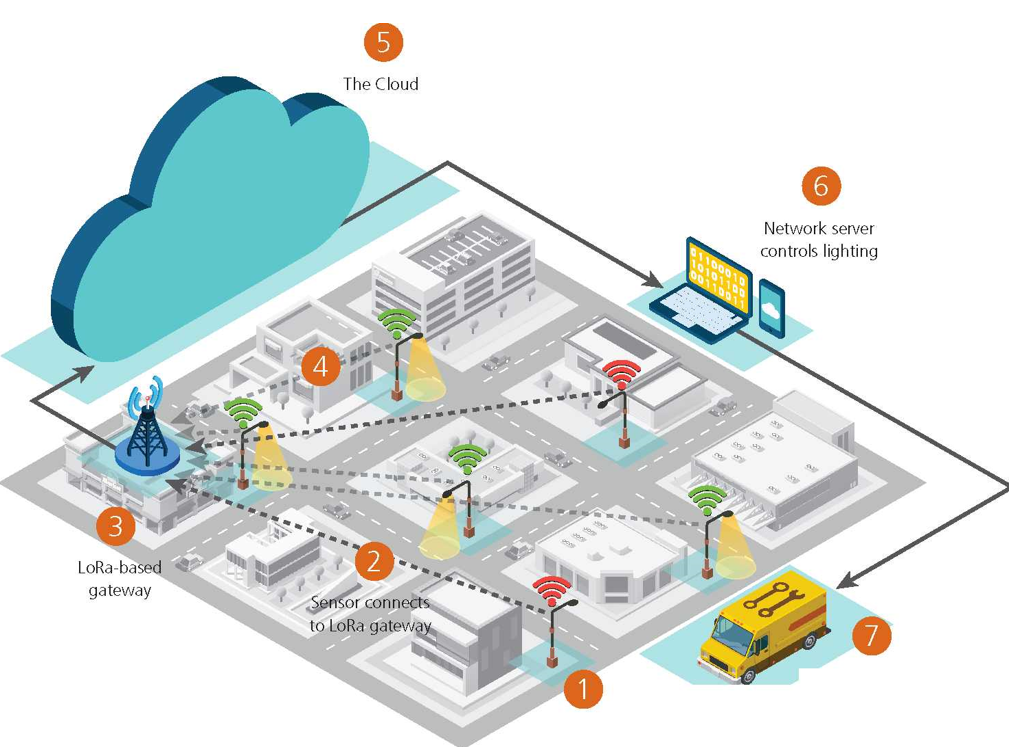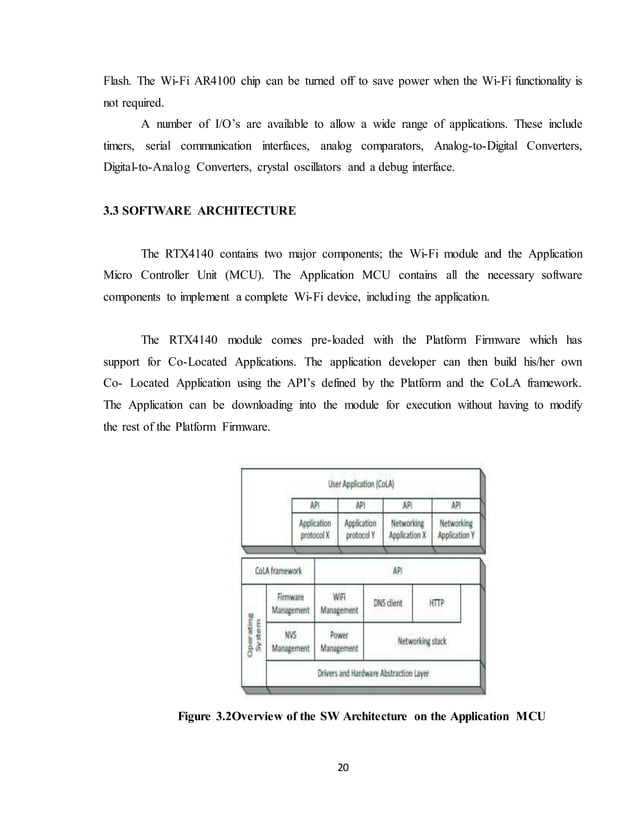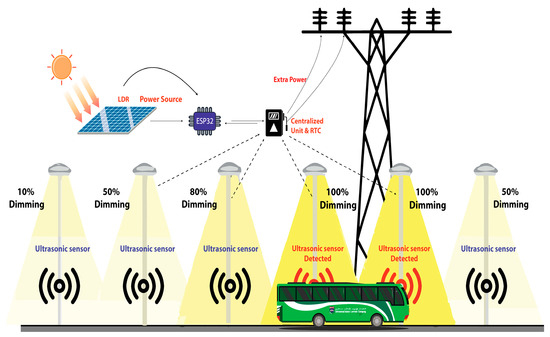Design and Implementation of an IoT Circuit Diagram IOT Based Street Light Control Karthy R. Street lightening is an essential infrastructure for cities in order to assure the security of citizens and goods. This infrastructure has however, a high economic and ecological cost. The work aimed at developing a low cost, low power microcontroller to adjust the light of LED street luminaires. The light sensor module have strong adaptable to the environment, having a pair of infrared transmitter and receiver, transmitter launch a certain frequency infrared, when meet obstacle in the detection direction, the infrared receiver is reflected back by the receiver tube, after processing through the comparator circuit, the green indicator light will illuminate while the signal output Now moving to the proposed system automated with the use of light sensors, not just the saving of energy and ensuring safety, we can also see a few more advantages following. Advantagesof the Proposed System. Automatic switching of street lights; Maintenance cost reduction; Reduction in CO₂ emission; Reduction of light pollution; Wireless

Smart Street Lighting vs Old School Street Lighting. Smart LED street lighting has several advantages over old school non-LED street lights:. Lower power consumption.Smart LED lamps can be automatically dimmed when there are no people around, saving 50% or more of the power consumption.. Failure detection.Thanks to remote monitoring, lamp failure can be instantaneously detected and a repair In this project we are demonstrating the prototype of the Smart Street Light with 3 IR sensors, 1 LDR sensor and 3 LEDs - each representing one street light. We will also update the LDR sensor data to the ThingSpeak and control the LEDs (Street lights) over the internet from anywhere in the world.

Smart Street Light Project using Arduino UNO, LDR and LED Circuit Diagram
Implement IoT connectivity to monitor and control the street light remotely. Conclusion. The Smart Street Light System Project is a shining example of how technology and sustainability can work hand-in-hand. By combining motion detection, energy-efficient lighting, and footstep power generation, this design offers a cost-effective and eco At the moment, street lamps control much of the urban environment only through manual control, via a control switch installed in each street lamp. A significant amount of electrical energy is lost. So we have created a solution for that problem which is an automatic street light only using NodeMCU, LDR sensor and IR sensor.

Discover the future of smart street lights with a comprehensive guide on designing a smart lighting system using Arduino UNO, LDR, and a transistor. Learn how to interface hardware components, control devices, and decrease non-renewable resource usage . Explore step by step instructions, circuit connection, and sustainable solutions for better living . The system will turn on the street lights at a moderate level (to save electricity ⚡️) The light will be more bright 🌟 when there is a vehicle on the road or when it rains. The system also takes context information such as temperature and humidity on the road and uploads it to the cloud system.

Based Smart Street Light System Circuit Diagram
Fig. 1 - Introduction to Smart Street Light System. The Internet of Things (IoT) primarily enables the concept of Smart Street Lights by collecting different types of electronic data from different physical devices using sensors and supplying information to the devices. By this, the expense spent on street lights can be significantly reduced and the amount saved can be invested in other
